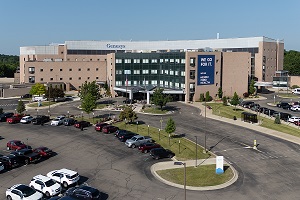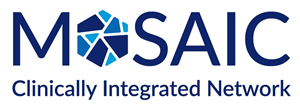New Awake Brain Surgery Available
Jackson, Michigan - Henry Ford Allegiance Health’s expanding scope of neurosurgery options now includes interoperative brain mapping, also known as awake brain surgery. Neurosurgeon Azam Basheer, MD, performed the hospital’s first awake craniotomy in March, making it one of only three other sites offering the specialized procedure in Michigan.
Intraoperative brain mapping or “awake” brain surgery enables the surgeon to remove brain tumors that would otherwise be inoperable due to the tumor being too close to critical areas of the brain that control vision, language and body movements. The neurosurgeon uses computer images of the brain taken before and during the procedure, paired with the patient’s responses, to create a map of the functional areas of the brain.
Performing an awake craniotomy demands that the surgeon work very closely with the anesthesiologist. Through careful coordination with the surgeon, the anesthesiologist brings the patient to a more alert state so that the surgeon can ask the patient to perform specific tasks to confirm the brain function has not been disturbed. To precisely locate the functional areas of the brain that must be avoided, the neurosurgeon asks the patient to follow instructions, such as to count to 10, to squeeze a ball or identify an object in the room by sight. Once the surgeon is confident the patient’s brain and body are still “talking” to each other, the anesthesiologist helps the patient return to a deeper state of sedation so that the last portion of the surgery can be completed.
“I am especially grateful to anesthesiologist Ravnita Sharma, MD, for her expertise and collaboration,” said Dr. Basheer. “Performing an awake craniotomy requires surgical skill and an experienced anesthesiologist like Dr. Sharma, and also the commitment of the entire surgical team.”
Together, the surgeon and the anesthesiologist decide if awake brain surgery is right for a particular patient, depending on the person’s general health and predicted ability to remain calm during the procedure. Then, the team determines the most appropriate type of anesthesia for each patient. Throughout the procedure, the anesthesiologist ensures the patient does not feel any pain, monitors vital signs (heart rate, breathing and blood pressure) and talks to the patient to help the patient remain calm.
A successful awake craniotomy will result in the surgeon being able to remove as much of the brain tumor as possible without interfering with critical areas of the brain that control neurological function. Awake craniotomy gives new hope to patients with what were once considered inoperable tumors.
About Henry Ford Allegiance Health
Henry Ford Allegiance Health (HFAH) is a 475-bed health system in Jackson, Michigan. HFAH complements traditional acute care services with primary and community-based to support patients across the health continuum at every stage of life. With its Level II Trauma Center, Henry Ford Allegiance Health provides comprehensive care for severely injured patients. As a teaching hospital, Henry Ford Allegiance Health continually looks to the future with its Center for Health Innovation & Education and Graduate Medical Education program. Through its Health Improvement Organization (HIO), HFAH is also a national leader in forming community partnerships that innovatively address wellness and prevention needs across the region.
About Henry Ford Health System
Henry Ford Health System is a six-hospital system headquartered in Detroit, Michigan. It is one of the nation’s leading comprehensive, integrated health systems, recognized for clinical excellence and innovation. Henry Ford provides both health insurance and health care delivery, including acute, specialty, primary and preventive care services backed by excellence in research and education. Henry Ford Health System is led by President & CEO Wright Lassiter III.
.svg?iar=0&hash=F6049510E33E4E6D8196C26CCC0A64A4)

/hfh-logo-main--white.svg?iar=0&hash=ED491CBFADFB7670FAE94559C98D7798)







